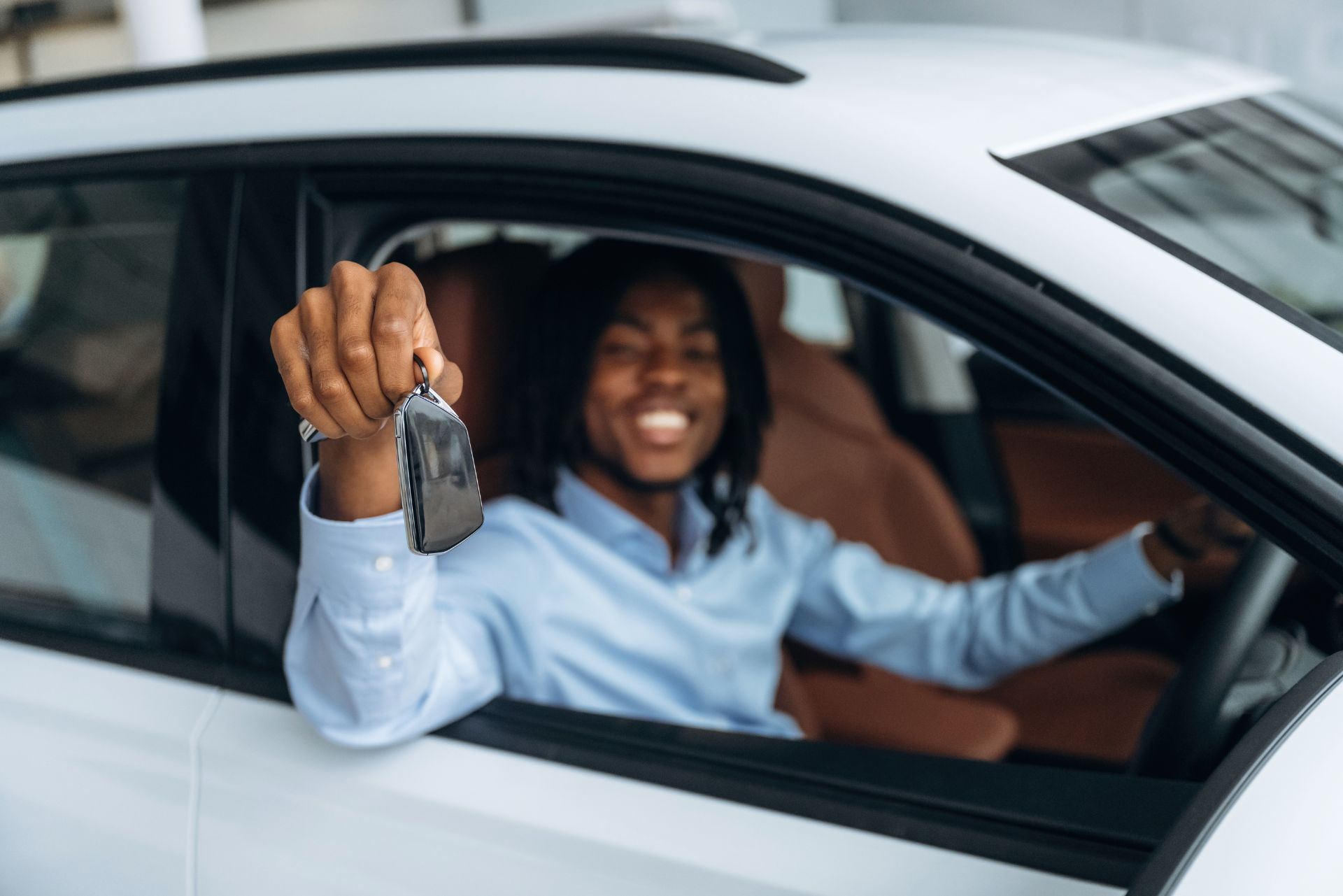In the state of Florida, navigating the world of car insurance can be complex, particularly when it comes to specific requirements like SR-22 insurance. For those who do not own a vehicle but still need to fulfill certain insurance obligations, understanding non-owner SR-22 insurance is crucial.
This article aims to provide comprehensive insights into what non-owner SR-22 insurance is, who needs it, and how to obtain it.
What is SR-22 Insurance?
SR-22 insurance is not a type of insurance policy itself, but rather a certificate that proves a driver has the minimum required liability coverage mandated by the state. It is often required for individuals who have been convicted of serious driving offenses, such as DUI, reckless driving, or having a suspended license. The SR-22 form is filed with the Florida Department of Highway Safety and Motor Vehicles (DHSMV) by an insurance company on behalf of the driver. This certificate serves as a safety net for the state, ensuring that drivers who have previously demonstrated risky behavior are financially responsible in the event of future accidents.
Obtaining SR-22 insurance can sometimes lead to higher premiums, as insurers view these drivers as higher risk. However, it's important to remember that the SR-22 itself does not increase your insurance rates; rather, it reflects the underlying risk associated with the driver's history. Additionally, once the SR-22 requirement is fulfilled, drivers may find that their premiums can decrease over time, particularly if they maintain a clean driving record moving forward.
Who Needs SR-22 Insurance?
Typically, individuals who have had their driving privileges revoked or suspended due to traffic violations are required to obtain SR-22 insurance. This includes those who have been involved in accidents without insurance, received multiple traffic tickets, or committed serious offenses like driving under the influence. In Florida, the requirement usually lasts for three years, during which the driver must maintain continuous coverage. Missing a payment or allowing the policy to lapse can result in the immediate cancellation of the SR-22, which can lead to further penalties and complications in regaining driving privileges.
It's also worth noting that the SR-22 requirement can vary significantly from state to state. While Florida mandates it for certain offenses, other states may have different criteria or may not require it at all. This can lead to confusion for drivers who move between states or who are unsure about their specific obligations. Therefore, it's crucial for individuals to consult with their insurance provider or legal advisor to fully understand their responsibilities and ensure compliance with local laws.
Understanding Non-Owner SR-22 Insurance
SR-22 without a car insurance is specifically designed for individuals who do not own a vehicle but still need to provide proof of financial responsibility. This type of insurance is ideal for those who frequently borrow or rent vehicles, such as students, business professionals, or individuals living in urban areas where car ownership is less common. Non-owner SR-22 insurance provides the necessary liability coverage while allowing the driver to comply with state requirements. This flexibility can be particularly beneficial for those who rely on ride-sharing services or public transportation but need to demonstrate financial responsibility due to past infractions.
Moreover, non-owner SR-22 insurance can also cover incidents that occur while driving a rented or borrowed vehicle, ensuring that the driver is protected in the event of an accident. However, it is essential for individuals to understand the limitations of this coverage, as it typically does not extend to physical damage to the vehicle itself. Therefore, drivers should consider additional rental car insurance options if they plan to rent vehicles frequently. By understanding the nuances of SR-22 insurance without a vehicle, individuals can make informed decisions that align with their driving habits and legal requirements.

Why is Non-Owner SR-22 Insurance Important?
Having non-owner SR-22 insurance is essential for several reasons. Firstly, it helps individuals meet state requirements and avoid further legal complications. Secondly, it protects the driver from potential financial liabilities in the event of an accident while operating a borrowed or rented vehicle. Lastly, maintaining an SR-22 can help in reinstating a suspended license, allowing individuals to regain their driving privileges. This reinstatement is crucial for those who rely on driving for work or personal errands, as it opens up opportunities that may have been limited due to a lack of a valid license.
Moreover, non-owner SR-22 insurance can also serve as a safety net for those who may be in transitional phases of their lives, such as students or individuals who have recently moved and are in the process of purchasing a vehicle. By having this insurance in place, they can navigate their daily activities without the constant worry of legal repercussions or financial burdens from potential accidents. This peace of mind is invaluable, especially in today's fast-paced world where the need for mobility is often a necessity.
Benefits of Non-Owner SR-22 Insurance
One of the primary benefits of non-owner SR-22 insurance is its flexibility. It allows individuals to drive legally without owning a vehicle. Additionally, it often comes at a lower cost compared to traditional auto insurance policies, making it a more affordable option for those who do not drive regularly. Furthermore, having this insurance can improve a driver’s chances of obtaining a regular insurance policy in the future, as it demonstrates a commitment to responsible driving. This commitment can be particularly beneficial for those who may have had previous infractions, as insurers often look favorably upon individuals who take proactive steps to rectify their driving history.
In addition to cost-effectiveness, non-owner SR-22 insurance can also provide a sense of security for individuals who may borrow vehicles from friends or family. Knowing that they are covered in the event of an accident can alleviate the stress of borrowing a car, allowing for more enjoyable experiences without the fear of financial repercussions. This insurance can also be a great asset for those who frequently travel or relocate, as it ensures that they remain compliant with state laws regardless of their location.
Limitations of Non-Owner SR-22 Insurance
While non-owner SR-22 insurance offers several advantages, it is essential to understand its limitations. This type of insurance typically does not cover damages to the borrowed or rented vehicle, nor does it provide coverage for personal injuries sustained in an accident. Therefore, individuals who frequently drive may want to consider additional coverage options to ensure comprehensive protection. It is also important to note that non-owner SR-22 insurance is not a substitute for standard auto insurance; it is specifically designed for those who do not own a vehicle but still need to fulfill legal requirements.
Additionally, some states may have specific restrictions regarding non-owner SR-22 policies, which could impact the coverage limits or eligibility criteria. For instance, certain high-risk drivers may find it challenging to secure this type of insurance if they have multiple violations on their record. Therefore, it is crucial for individuals to thoroughly research their state's regulations and consult with insurance professionals to ensure they are making informed decisions about their coverage options. Understanding these nuances can help individuals navigate the complexities of insurance and maintain their driving privileges without unnecessary complications.
How to Obtain Non-Owner SR-22 Insurance in Florida
Obtaining non-owner SR-22 insurance in Florida involves several steps. First, individuals must find an insurance provider that offers SR-22 filings. Not all insurance companies provide this service, so it’s essential to do thorough research. Once a suitable provider is found, the individual will need to provide necessary documentation, including proof of identity, driving history, and any relevant court documents.
Steps to Follow
The process of obtaining non-owner SR-22 insurance can be broken down into a few key steps:
- Research Insurance Providers: Look for companies that offer non-owner SR-22 insurance in Florida. Compare quotes and coverage options to find the best fit.
- Gather Necessary Documentation: Prepare the required documents, including your driver's license, social security number, and any court-related paperwork.
- Apply for Coverage: Contact the chosen insurance provider to apply for SR-22 without a vehicle insurance. Be honest about your driving history to ensure accurate coverage.
- File the SR-22 Form: Once the policy is in place, the insurance company will file the SR-22 form with the Florida DHSMV on your behalf.
Cost of Non-Owner SR-22 Insurance
The cost of non-owner SR-22 insurance can vary significantly based on several factors, including the driver's history, the insurance provider, and the level of coverage chosen. Generally, non-owner policies are more affordable than traditional auto insurance, but drivers should still expect to pay a premium for the SR-22 filing. It’s advisable to request quotes from multiple providers to find the most competitive rates.
Additionally, it’s important to understand that the duration for which you’ll need to maintain the SR-22 filing can also impact the overall cost. In Florida, the SR-22 requirement typically lasts for three years, during which time you must maintain continuous coverage without any lapses. If there are any gaps in your insurance, it could lead to additional penalties or even an extension of the SR-22 requirement. Therefore, staying informed about your policy and ensuring timely payments is crucial to avoid unexpected costs.
Moreover, many drivers may not be aware that non-owner SR-22 insurance is specifically designed for those who do not own a vehicle but still need to demonstrate financial responsibility, often due to previous driving infractions. This type of insurance can cover liabilities incurred while driving a borrowed or rented vehicle, which is particularly useful for those who rely on car-sharing services or frequently rent cars. Understanding the nuances of this insurance can help individuals make better choices regarding their driving habits and financial planning.
Maintaining Your Non-Owner SR-22 Insurance
Once a non-owner SR-22 insurance policy is in place, it is crucial to maintain continuous coverage. Failure to do so can result in the suspension of driving privileges and additional penalties. Drivers should keep track of their policy renewal dates and ensure that payments are made on time to avoid lapses in coverage. This proactive approach not only safeguards against legal issues but also helps in maintaining a clean driving record, which can be beneficial in the long run.
Renewing Your Policy
Renewing a non-owner SR-22 insurance policy typically involves a straightforward process. As the renewal date approaches, the insurance provider will notify the policyholder. It’s essential to review the policy terms and coverage limits, as needs may change over time. If there are any changes in driving habits or circumstances, it’s wise to discuss these with the insurance agent to ensure the policy remains adequate. Additionally, this is a great opportunity to shop around for better rates or enhanced coverage options, as many insurers offer competitive pricing and discounts for safe driving records or bundling policies.
Consequences of Lapse in Coverage
A lapse in non-owner SR-22 insurance coverage can have severe consequences. Not only can it lead to the suspension of the driver's license, but it can also result in increased insurance premiums when seeking new coverage. Additionally, the driver may face legal repercussions if caught driving without valid insurance. Therefore, maintaining continuous coverage is paramount. Furthermore, a lapse can also affect one's credit score, as insurance companies often consider a history of continuous coverage when determining risk. This can lead to higher costs in other areas, such as loans or mortgages, where insurance history is taken into account during the underwriting process.
Moreover, it is important to understand that the SR-22 without a car form itself is a certificate of financial responsibility, which serves as a notification to the state that the driver has the required insurance coverage. If the insurance company cancels the policy or fails to file the SR-22 form with the state, the driver may face immediate penalties. Therefore, it is advisable to maintain open lines of communication with the insurance provider and confirm that all necessary paperwork is filed correctly and on time. Staying informed about state regulations regarding SR-22 requirements can also help in navigating any potential pitfalls associated with maintaining this type of insurance.

Alternatives to Non-Owner SR-22 Insurance
While non-owner SR-22 insurance may be the best option for many individuals, there are alternatives to consider. Depending on personal circumstances, some drivers may find that traditional auto insurance or other forms of coverage better suit their needs.
Traditional Auto Insurance
For those who own a vehicle, traditional auto insurance is the most straightforward option. This type of insurance provides comprehensive coverage for the insured vehicle and can include liability, collision, and comprehensive coverage. However, it may not be suitable for individuals who do not drive regularly or do not own a car. Additionally, traditional policies often come with a variety of discounts, such as safe driver discounts or multi-policy discounts, which can help reduce overall costs. It's also worth noting that some insurers offer usage-based insurance programs, which track driving behavior and adjust premiums accordingly, potentially benefiting those who drive less frequently.
Rental Car Insurance
Individuals who frequently rent vehicles may want to consider purchasing rental car insurance. Many rental companies offer insurance options that can provide coverage for damages and liability while driving a rented vehicle. However, it’s essential to read the terms carefully, as this coverage may not meet the SR-22 requirements. Additionally, some personal auto insurance policies may extend coverage to rental vehicles, so it’s advisable for renters to check with their insurance provider before opting for rental insurance. This can lead to significant savings and ensure adequate protection while on the road. Furthermore, credit cards often provide rental car insurance as a perk, which can also be a viable alternative for those looking to avoid additional costs while renting a vehicle.
Conclusion
Understanding Florida non-owner SR-22 insurance is crucial for individuals who need to comply with state requirements without owning a vehicle. By grasping the fundamentals of SR-22 insurance, its benefits and limitations, and the steps to obtain it, drivers can navigate the complexities of insurance with confidence. Maintaining continuous coverage and staying informed about alternatives can further enhance financial security and legal compliance.
For anyone facing the challenges of driving without a vehicle, non-owner SR-22 insurance offers a viable solution to meet legal obligations while ensuring peace of mind on the road.

Contact Us


